Media | Articles
Formula Hybrid + Electric prepares students for an electrified future
Formula Hybrid + Electric began in 2006, when students from the Thayer School of Engineering at Dartmouth College built a hybrid race car and took it to that year’s Formula SAE competition. “The students showed up and the car was promptly disqualified from the competition due to its unfair advantage versus the cars with internal-combustion engines,” recalls Mike Chapman, Director, Formula Hybrid + Electric Competition at the Thayer School. “So, the Dartmouth Formula Racing students and their advisor, Doug Fraser, came back to Hanover, New Hampshire, and said, ‘What do we do?’ And their solution was to put together their own competition.”
The event—which is the only such competition for university-level students—has been held at the New Hampshire Motor Speedway since its inception, with teams from countries ranging from Canada, India, Russia, and the United States participating over the years.

“The teams take a very large set of rules and they work on their cars for anywhere from one to two years,” explains Chapman. “Once they are at the track, we run them through a whole series of events. Before they are allowed on the track, they have to pass a mechanical tech inspection and electrical tech inspection.” Once the teams are on the track, they compete in acceleration, autocross, and endurance challenges. For the endurance part of the competition, teams have to be able to complete 44 laps of the New Hampshire Motor Speedway road course, for a total of 44 kilometers.
“In between the track-based events, we also have the presentation events,” says Chapman. “We have the design event, where students showcase their innovations for the year. And then we also have a project-management component, where the teams put together an initial project plan, an interim project plan and a final project plan.”

Formula Hybrid + Electric was held every year from 2006 to 2019, and then in 2020, the pandemic hit. “For 2020, we had to make the decision to go virtual in early March of 2020, before the pandemic really got rolling,” remembers Chapman. “The competition was scheduled to begin on April 25, but we had to take into account the fact that we had teams coming from India, so we wanted to make sure that they didn’t start to ship their cars here and then have them get stuck somewhere en route.”
Marketplace
Buy and sell classics with confidence
As it did in many other contexts in 2020, Zoom came to the rescue. “We were able to use Zoom to do the design portion of the competition, the project-management portion, and we held sponsor webinars, which we had not done before. Each sponsor got a one-hour slot to talk about their product, their technology, how you get started in their industry, and a whole range of other topics.
“In addition, the teams have to fill out something called the Electrical Safety Form,” continues Chapman. “It’s a very rigorous process, and these documents have to be approved before a car can be on track. We were able to do the Form reviews virtually and each review took about two hours.” Teams are reviewed for features such as when a vehicle’s safety light comes on, wiring sizes, fuses, and the “big red button,” which, when pushed, shuts everything down. “We do this for two reasons,” explains Chapman. “The first is to make sure that the car is safe for the other judges and volunteers, and the second is to make sure that the students are making the correct design decisions.”
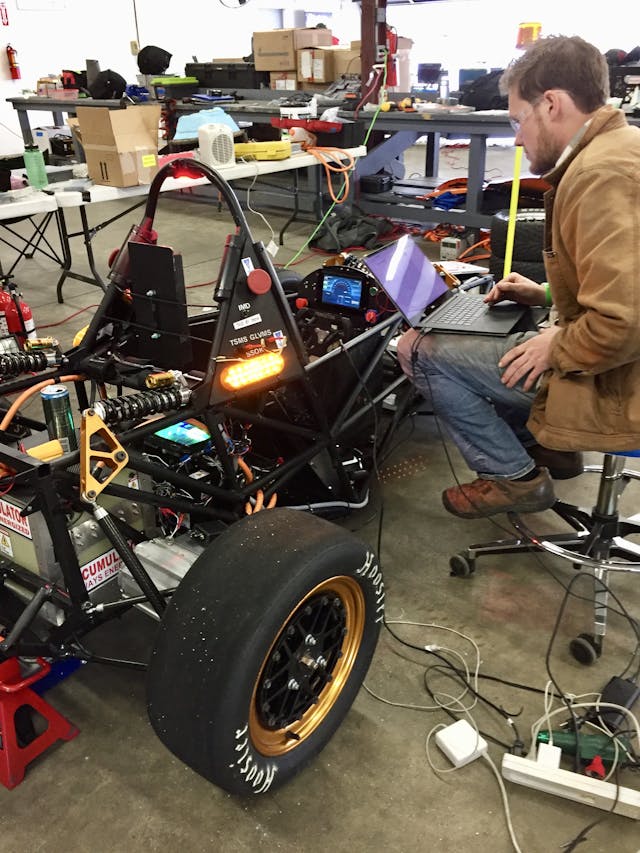
Despite the compressed timelines imposed by COVID, teams were able to meet the challenges and persevere. “The top two teams for our hybrid competitors were both from India,” says Jessica Kinzie, Coordinating Manager, Formula Hybrid Competition. “First place went to RV College of Engineering, while second place went to SRM Institute of Science and Technology.”
In the EV category, first place went to the team from the University of Vermont, while second went to the team from Yale University. “The University of Vermont team is a seasoned team. They’ve been competing with us for as long as we’ve had the EV category,” relates Kinzie.
“In terms of project management, both Vermont and Yale just really had it nailed. And I think we could say the same thing for RV and SRM. The top teams who place well consistently across the board have a really good organization.”
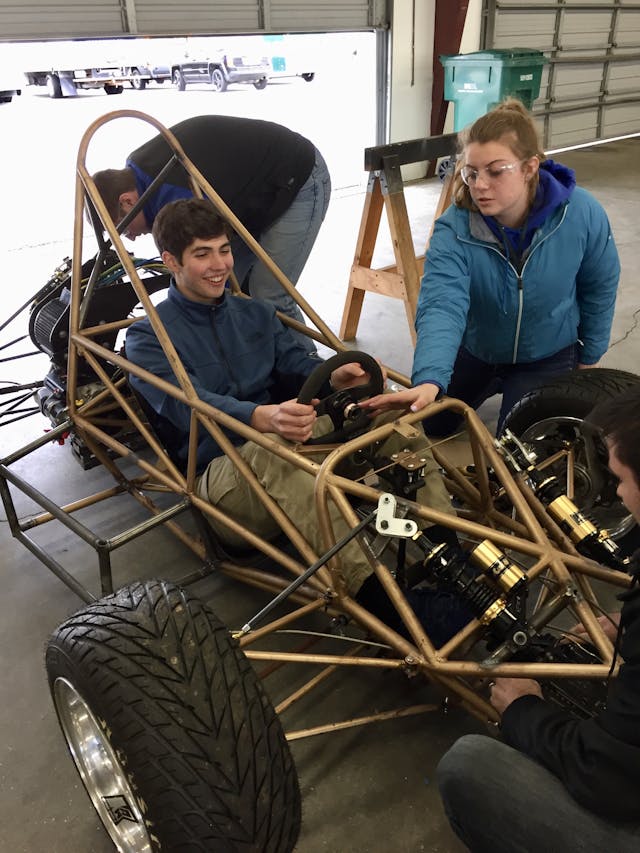
Formula Hybrid + Electric will be held virtually again for 2021, taking lessons learned from 2020. “For one of our sponsor expos, we’ll be featuring a very special speaker,” Chapman reveals. “Pat Symonds, the chief technology officer for Formula 1, will talk about hybrid technology and how to break into motorsports. Formula 1, World Rally Championship, and eventually NASCAR are all going to be hybrid, and we’re excited to hear Pat’s views on the topic.
“We’re also adding two new events,” Chapman continues. “The first is called Optimal Hybrid, where the teams are challenged to take a clean sheet of paper and design a hybrid car from scratch for 2022 and beyond. The second is a virtual racing challenge, which we’re doing with iRacing and McLaren Applied Technologies, which is the company that does the telemetry and data acquisition for NASCAR. iRacing has given the students licenses for the New Hampshire Motor Speedway. iRacing has mapped out the Speedway’s road course and the hill course, which is where we would normally have our endurance event. Students will get to virtually race on that same course. In addition, iRacing has given students licenses for a USF2000 open-wheel racer.”
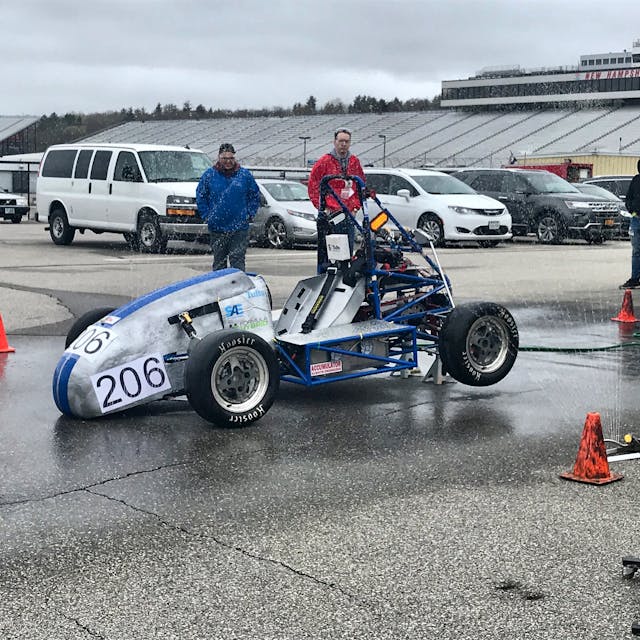
Students will spend their time working on the setup of the cars and will be able to change parameters such as tire pressures, spring rates, dampers, and ride height. “Once they get that all set up, they will hand that car over to a “blue-ribbon” driver,” explains Chapman. “That driver will then drive the car virtually on that same road course and then give the team feedback. The team will also take the feedback they get from McLaren Applied, then they’ll decide whether they need to tweak the setup. And then the blue-ribbon driver will take the virtual car on some hot laps and whoever is fastest will get the most points.”
The 2021 Formula Hybrid + Electric competition will begin on April 5, with Hagerty as a sponsor. “Hagerty is very excited to be involved with the 2021 Formula Hybrid + Electric competition,” says William Corr, Vice President, East Region for Hagerty. “The event aligns perfectly with Hagerty’s mission to save driving for future generations, and we’re pleased that our sponsorship will help raise awareness of this event.”
Chapman and Kinzie are looking forward to conducting the competition. “We have sixteen teams entered, and all of the teams from 2020 will be competing with us again,” says Chapman. “We’re excited to get the teams on track, even if it’s in a virtual format!”
Images are from 2019, the last year the competition was held in person.
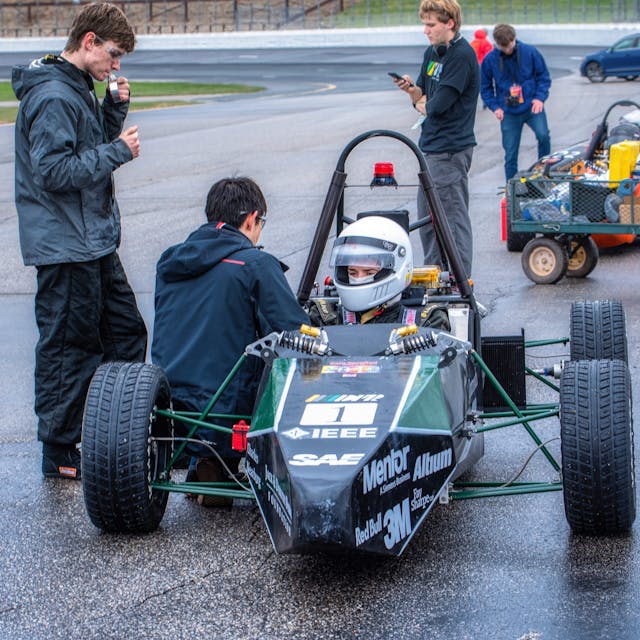
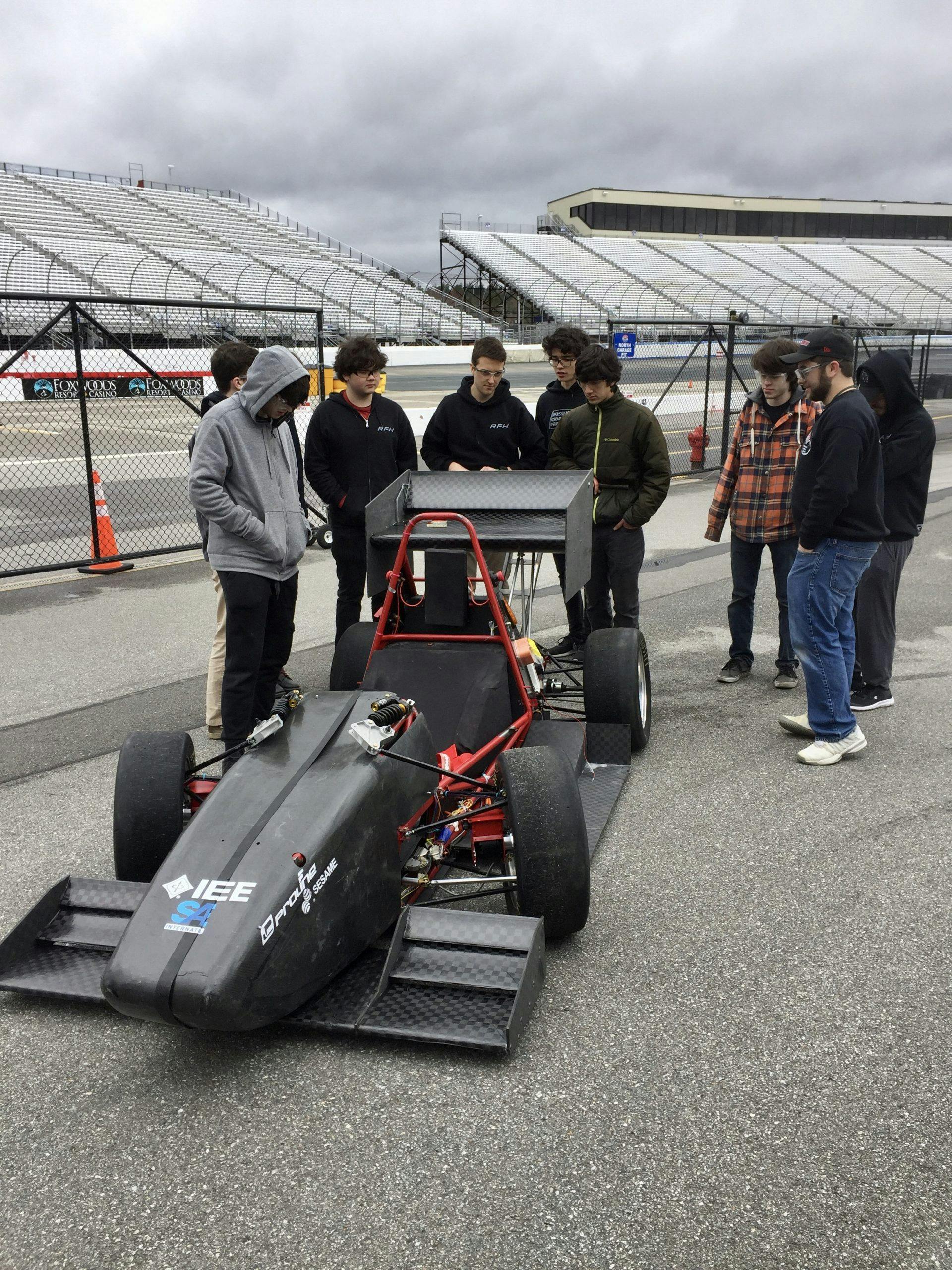
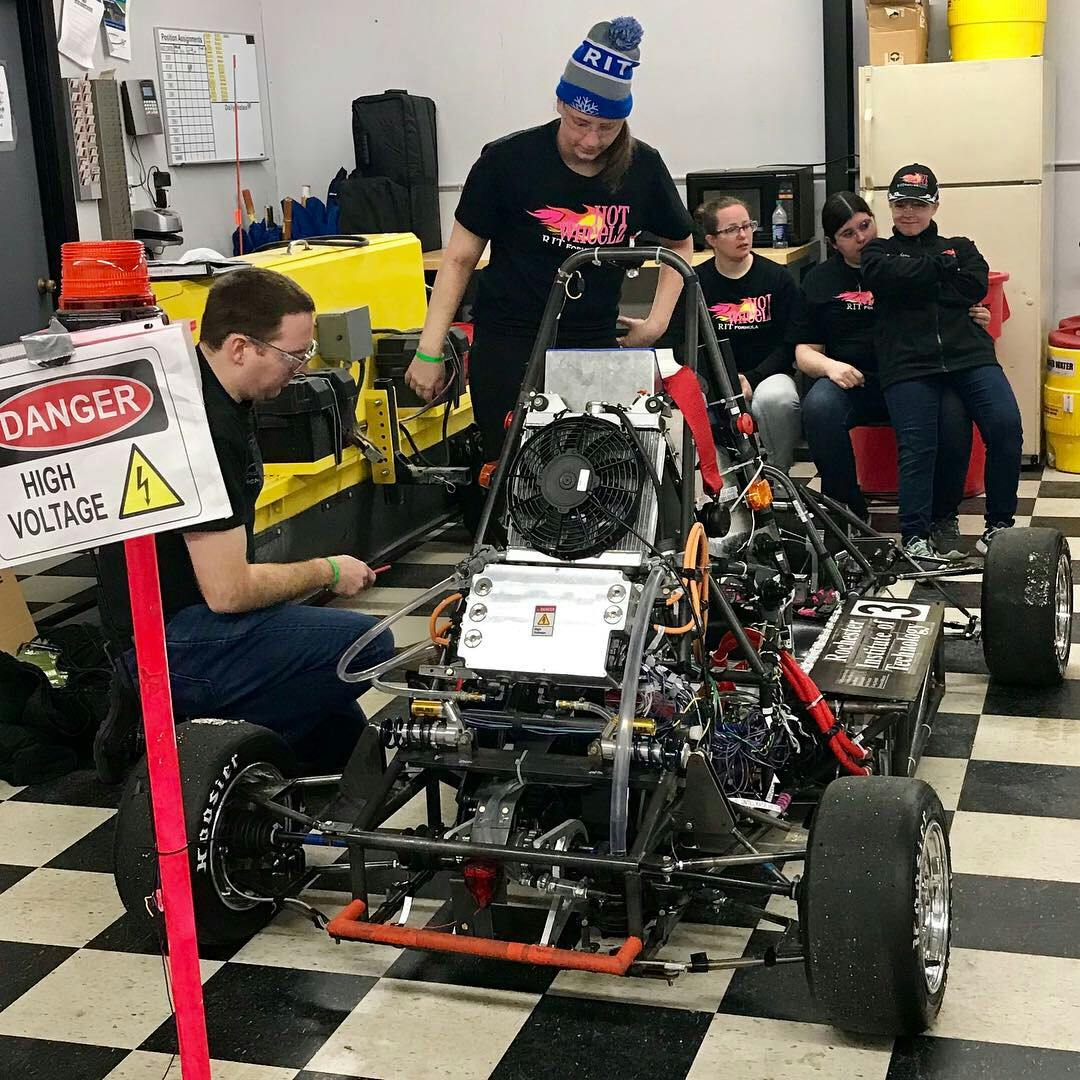
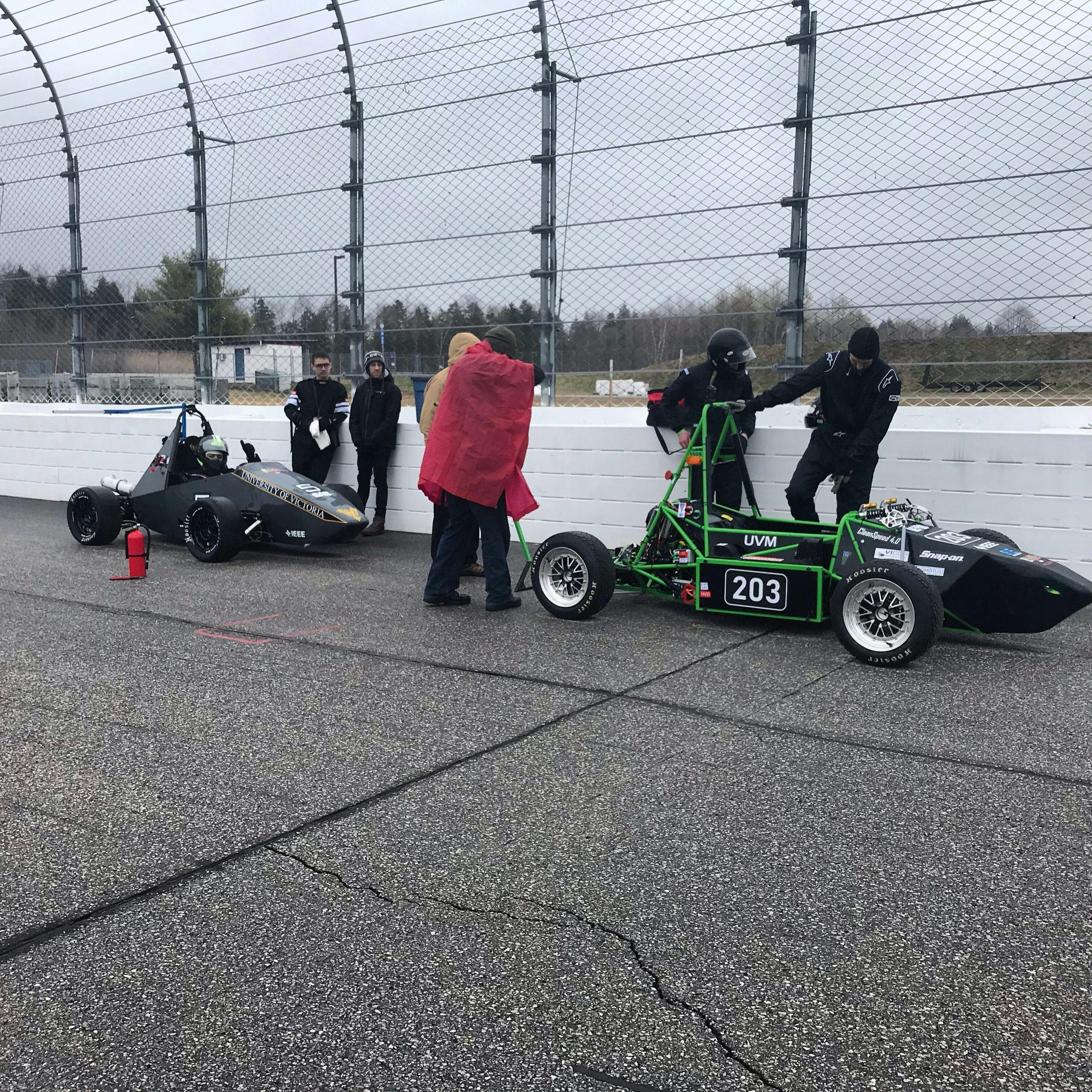
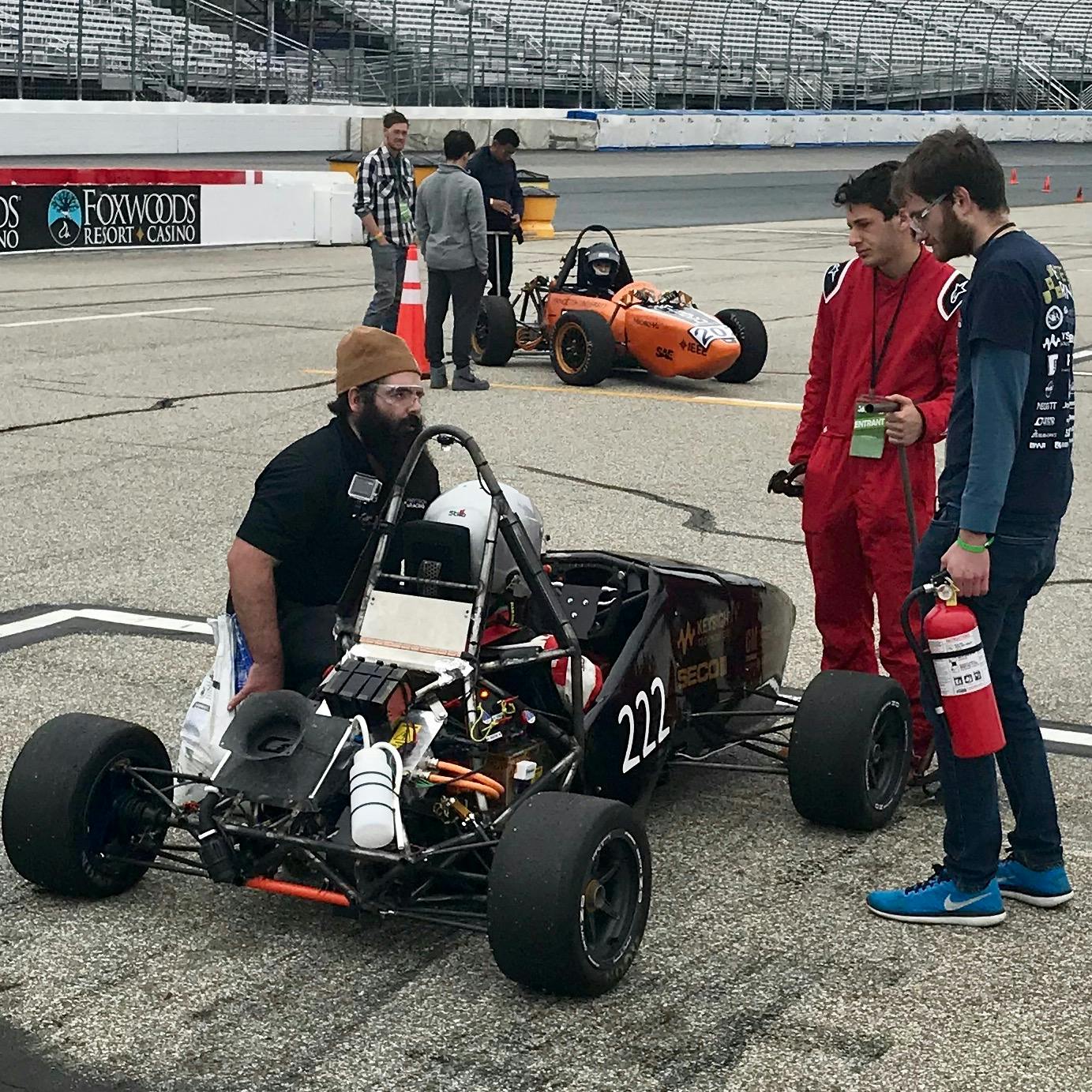
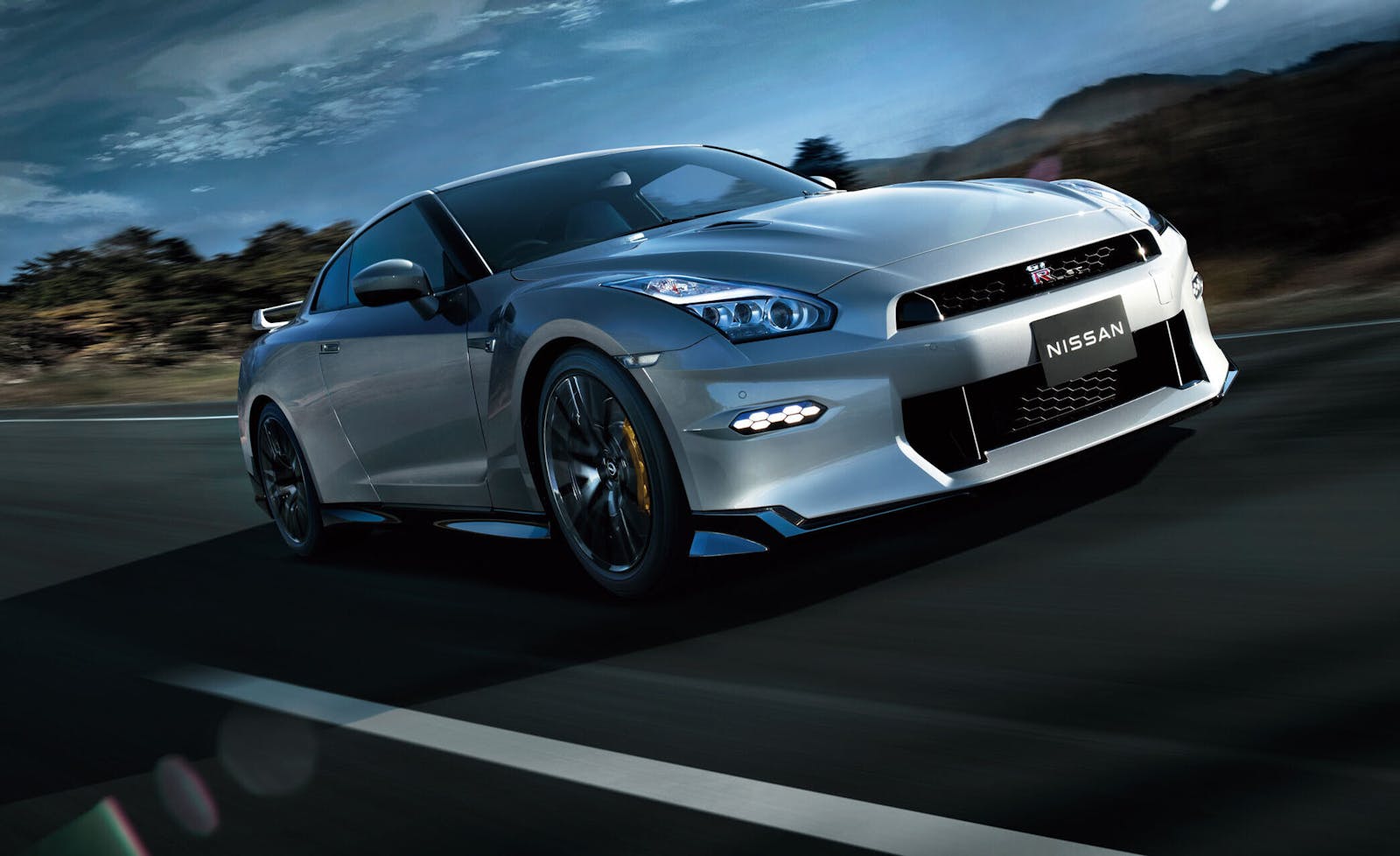









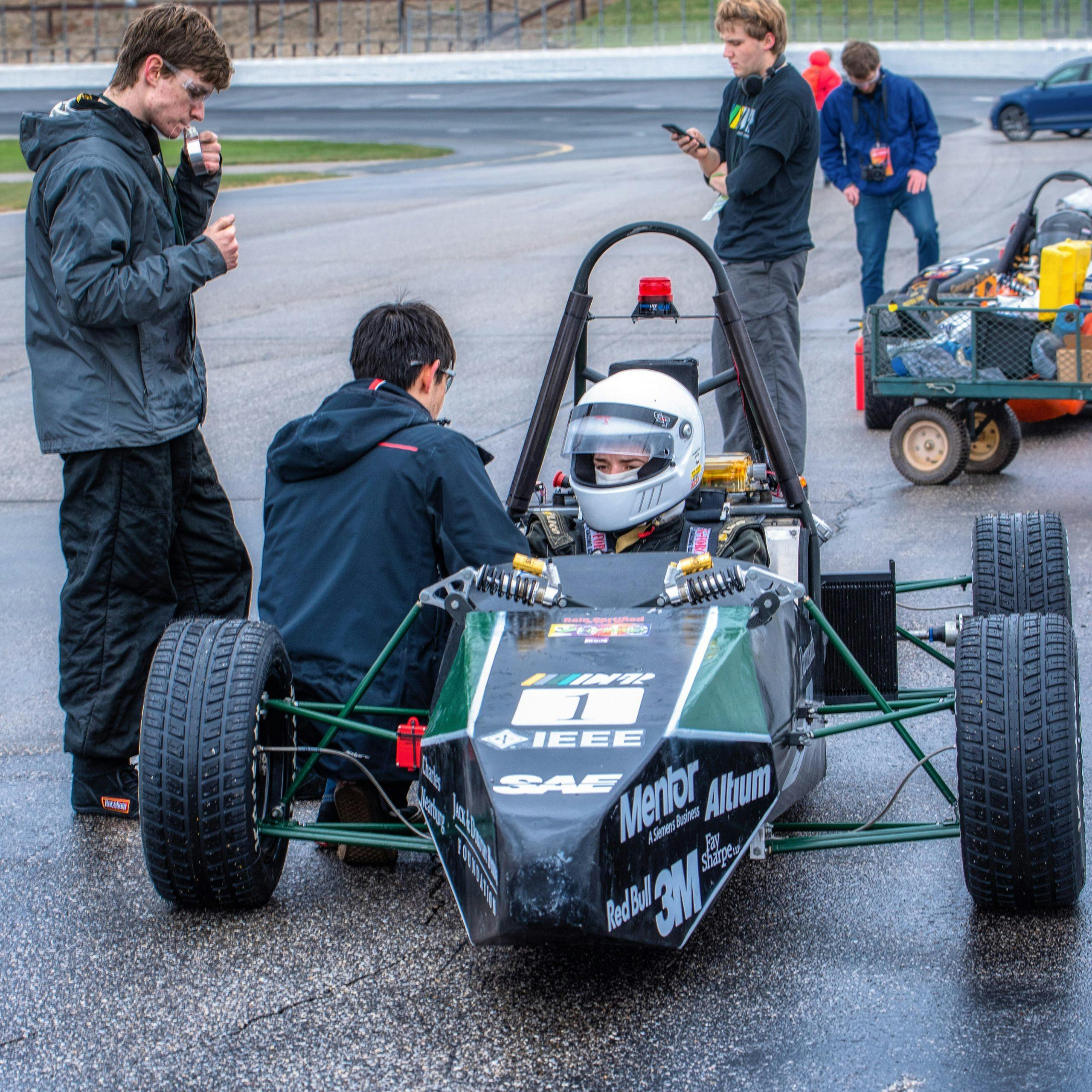
Formula Hybrid + Electric sponsors again for 2023! Thanks guys!